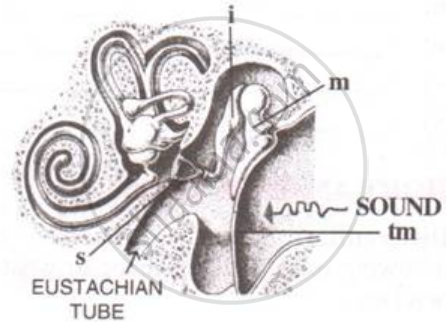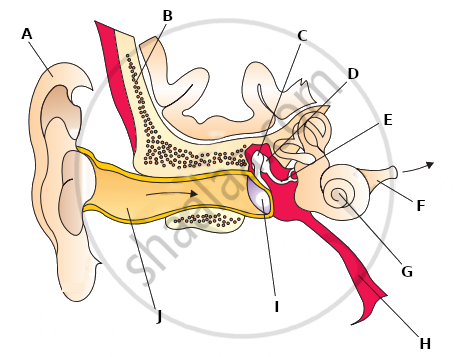Advertisements
Advertisements
Question
Mention if the following statement is true (T) or false (F) Give reason.
Malleus incus and stapes are collectively called the ear ossicles.
Options
True
False
Solution
True
APPEARS IN
RELATED QUESTIONS
Explain how the human ear works.
The number of oscillations per second of a vibrating object is called its time period.
Mention the exact location of the Eustachian tube
State the exact location of the Ciliary body
Name the following:
The tube which connects the cavity of the middle ear with the throat.
Differentiate between members of the following pair with reference to what is asked in bracket.
Dynamic balance and static balance (Definition)
Given below is a set of five parts. Rewrite them in correct sequence.
Cochlea, tympanum, auditory canal, ear ossicles, oval window.
With reference to the human ear, answer the question that follow:
Give the technical term for the structure found in the inner ear.
With reference to the human ear, answer the question that follow:
Name the nerve, which transmits messages from the ear to the brain.
The figure below is the sectional view of a part of the skull showing s sense organ:

Name the sense organ.
Choose the correct answer.
Canal joining middle ear to pharynx ___________
Given below is a diagram of a part of the human ear. Study the same and answer the question that follow:

Name the audio receptor region present in the part labeled 'A'.
Complete the following sentence with appropriate word :
________ is the organ of balance and hearing in the body.
Mention, if the following statement is True or False
The part of ear associated with balance is the cochlea.
Choose the Odd One Out:
The Eardrum moves inward when a rarefaction reaches it.
List the causes of noise pollution.
Select the option with incorrect identification:

With reference to human ear answer the question that follow:
Name the part of the ear associated with dynamic balance.
Name the part of the inner ear that is responsible for static balance in human beings.
